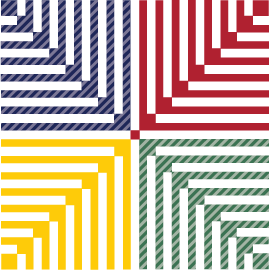

BPFF: We know and love you as a talented poetess, writer, activist, and public speaker. How and when did you also become a filmmaker?
ZA: I have always loved film and theatre—in my last semester at Harvard, I wanted to learn how to do it myself so I enrolled in a filmmaking class with the brilliant Alfred Guzzetti. Little Jerusalem was my semester’s work: I directed, edited, produced, translated, color corrected etc.
BPFF: Why did you decide to make a film about the Andala cafe? How did you first discover it and what significance did it have for you while you lived in Boston (from 2015 – 2017)?
ZA: Andala has always had a special place in my heart. For me and for so many others in the Boston area, it offered some much-needed respite from the intense pace of grad school. I don’t know how I discovered it—it was one of those places everyone knew and loved—a poorly kept family secret. Throughout my two years in Cambridge, I would go to Andala to write, study, read, eat, laugh with friends, discuss the future of the Arab world and everything in between. With time, and particularly with the making of Little Jerusalem, Andala has come to represent a home away from home—a place where time moves slower and laughter lingers in the air for longer. The evening of my graduation, Sami made a delicious Maqlouba for me, my mother, a few very dear friends and mentors which culminated with the ritual clash about accepting payment (Sami refused to engage at all). On my last morning in Cambridge, my friends assembled in Andala for a quiet breakfast and a goodbye. It’s a place in which I’ve developed friendships and thought about who I am and what world I want to work for. It sounds dramatic, but it’s that important to me. The film was a natural homage.
BPFF: In the film, you profile Sami Herbawi, the owner of Andala. How did you meet Sami and what motivated you to make a film about him?
ZA: Sami is quite a quiet figure; he usually sits downstairs in the café in the late afternoon, always in the same chair with a pot of tea. He laughs quietly, the corners of his eyes creasing. He works in the kitchen and is friendly to the regulars. He’s not a braggadocios restaurant owner sitting in the front of house. It’s almost as if now that he’s made this little haven, he leaves it to the visitors to take ownership of it. As a consequence, I actually didn’t know who he was. I had heard his name, of course, but hadn’t met him for at least a year. I got his approval for the film quite casually but initially I didn’t think to interview him or incorporate him into the film at all. I thought at first it was a story about the diverse clientele, or else the staff who enjoy the place like any of the customers. It was clear though, after one conversation with him, that he was my protagonist. Andala was nothing without Sami. His smile, his stories, his mannerisms—they all told a story that was the foundation stone of the café.
BPFF: What did you learn about Sami from making this film that you did not know previously? About Palestinians who live in the United States generally, or Boston specifically? How could you relate to some of the themes and emotions he expressed as a Palestinian who is also living in diaspora?
ZA: Sami was always so full of stories, from his youth in Jerusalem, his experiences in the US and his battles about how to make the perfect baklawa. There was so much we talked about that wasn’t on film. I found his tales of Jerusalem and the oppression he faced as a teenager to be the most affecting. He was so humorous about it where others would be tormented. For example, he told me how he was detained several times in the Old City and his mother would fret, asking him if they were feeding him and letting him shower. He assured her that they let him wash twice a day; it turns out that they fire-hosed him. He laughed heartily and we followed—he has this remarkable ability to see the humor in the sadness.
His Palestinian-American experience was fascinating too. He was not from my generation and had clearly seen Cambridge evolve into what it is today, and he helped situate many of the things that had confused me in their historical context. Undoubtedly, it was his nostalgia, his malaise, which stuck with me most. As Palestinians in exile, it is not uncommon to feel like we are moving around in our own, incomplete worlds. Sami’s poetic description of his Palestine and the bittersweet diaspora he has found himself in spoke to me most. My heart broke listening to a man who has left his homeland and cannot get closer than the lights across the Dead Sea. After those shoots, I came to see Andala differently: It was so clearly his labor of love: his microcosmic Jerusalem until his Jerusalem is returned to him.
BPFF: Beyond screening this film at BPFF2017, what are your plans for it?
ZA: I’m surprised it’s done this well to be honest! It’s been selected for festivals in the US and Europe. I don’t know what’s lined up next for it… not much if I’m honest—these screenings have been the cherry on top of an already delicious cake. Making the film was satisfying enough for me.
BPFF: Do you have a next film project in mind? If so, what might that be?
ZA: I do, but until I can afford my own camera and sound equipment, I’ll keep it under wraps!
Little Jerusalem screens on Monday, October 23rd at the Cambridge Public Library at 5:00 pm as part of We Are Here. Free and open to the public.
View the other films in this show and the full festival schedule here.


